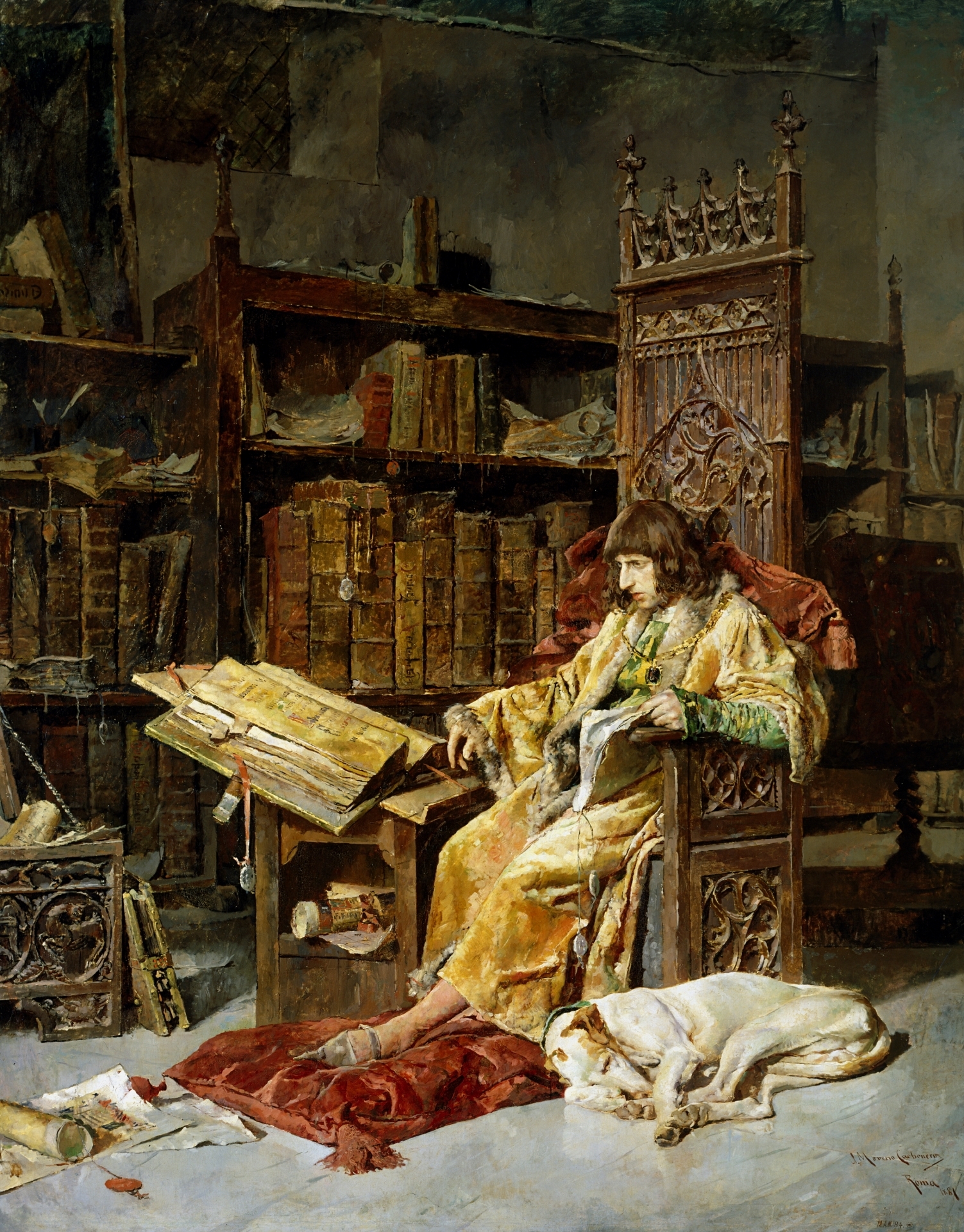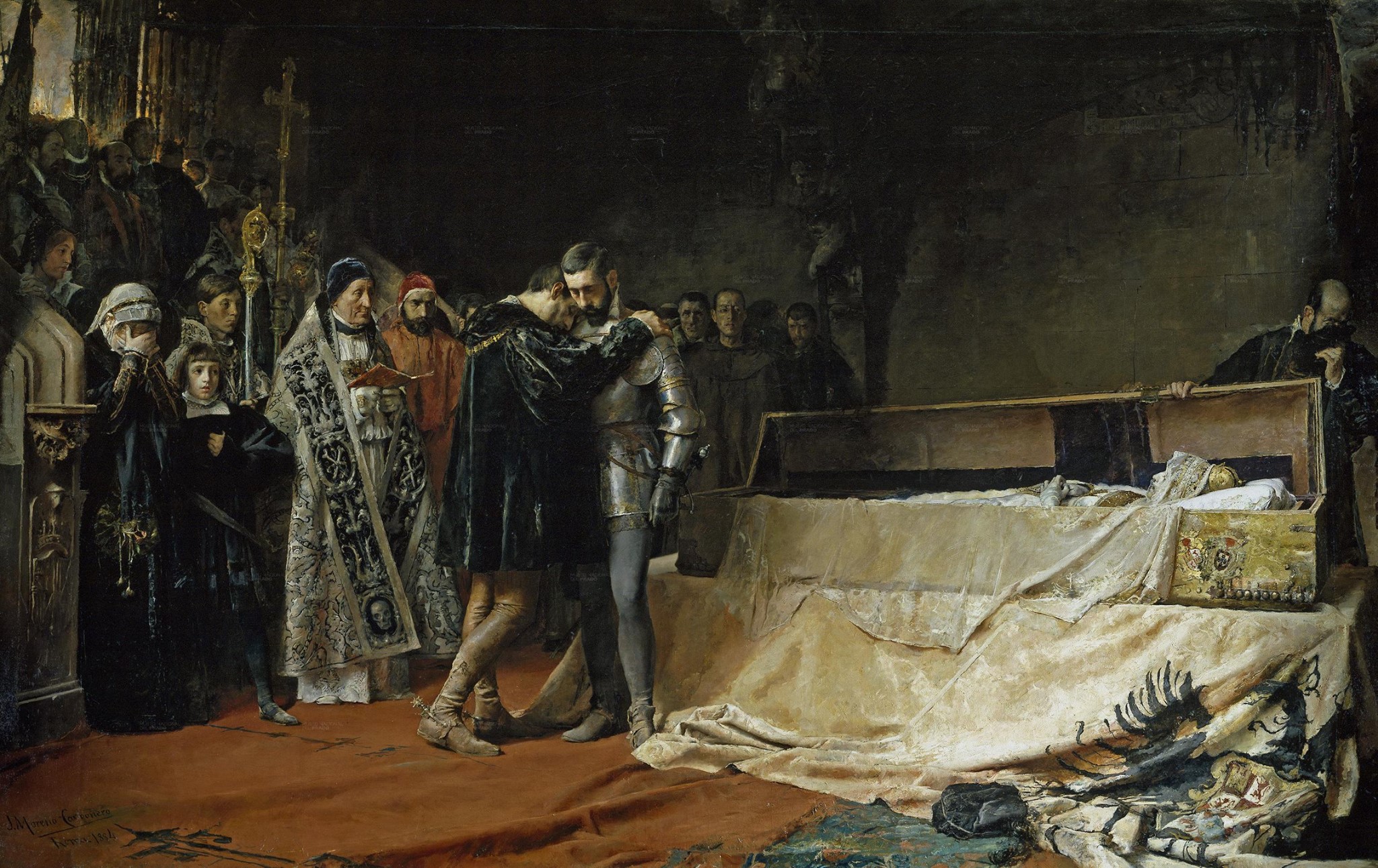Jose Moreno Carbonero was a 19th-century Spanish historical painter. Hailing from Málaga in Andalusia, he studied in Paris and worked in Rome before settling in Madrid and teaching at the Royal Academy of Fine Arts of San Fernando. Carbonero’s approach to historical painting broke from precedent in that instead of focusing on the drama of great historic moments in Spanish history, he concentrated on the human sentiments and attitudes surrounding them.
We can see this exhibited in Prince Carlos of Viana. Carlos IV of Viana, son of Juan II of Aragón and Blanca I of Navarra, was heir to the kingdoms of Aragón and Navarra in 15th-century Spain. When his mother died, his father married Juana Enríquez, which further strained the fraying father-son relationship. Their dynastic confrontations escalated into armed conflict and eventuated in the incarceration of prince, in deference to the medieval tradition of discarding inconvenient relations. Don Carlos was freed after twenty months but was imprisoned again by his father seven years later. He died shortly after his release from the second internment without having ruled successfully and leaving no legitimate heirs. His half-brother Fernando II succeeded their father and united Spain when he married Isabella I.
In Prince Carlos of Viana we see Don Carlos in captivity richly adorned with furs and jewels, apparently comfortable and content. However with deeper consideration we see the expression of his face betrays the bitterness he has for his fate. While this painting is a narrative snapshot of a Spanish historical figure, it also contains a didactic application for us today. When we contemplate el principe’s misfortune, we can comprehend the vanity of seeking escape or salvation in material or pretentious things. A soul is not fulfilled by sumptuous finery. It is not soothed by books, nor is it redeemed by a person's ancestry. It is evident that excessive and lavish comforts ultimately offer a soul no recompense. Finally, we can look with empathy when we think about those who do not have physical freedom such as the incarcerated, homebound, paralyzed, or enslaved.
- Patti


 Jose Moreno Carbonero
Jose Moreno Carbonero